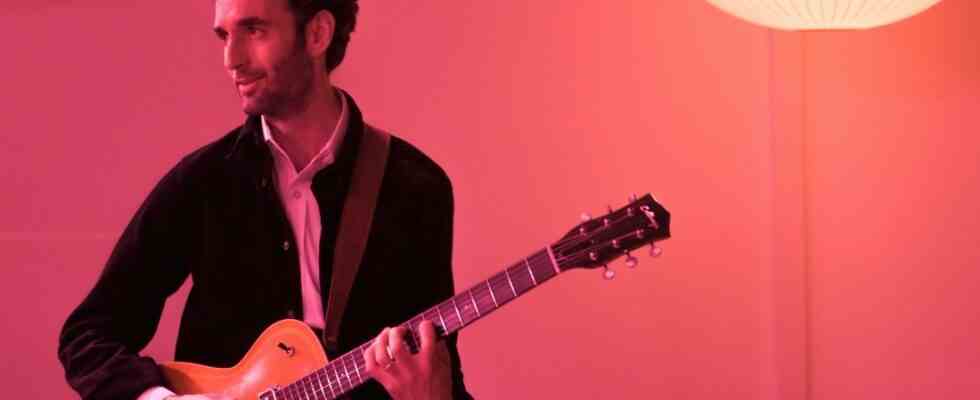There is no other instrument in the 20th century that was charged with so much symbolic ballast, sound gimmicks and machismo as the guitar. If you brush away all that and only want to get into the depths of pop history through music, from folk to blues, jazz to the short but violent history of rock genres, you end up with Julian Lage. Strictly speaking, he is a jazz virtuoso, and in that world he is also treated as the new superstar of his instrument. Longer actually. In 1996, he was eight years old and a child prodigy in the San Francisco Bay Area, playing with the likes of Carlos Santana. There was even a documentary about him, Jules at Eight.
If you now briefly skip the child prodigy years and the inevitable A-League name-dropping bio, you end up in a present in which American music history is condensed into the minimalism of a jazz trio. His instrument always sounds so raw and genuine, as if he had just plugged it into the amplifier in a bar. And that is, as always in minimalism, a gesture of secret megalomania that forces the listener to concentrate entirely on the intricacies of the music. Or the sovereignty of the virtuoso who has already proven everything. And because he packs so much into the spartan sound and his playing, it’s worth listening to carefully.
For his new album “View with a Room” (Blue Note), he has brought on a second guitarist in Bill Frisell, who shares this eternal search for the essence of American music. They also complement each other well, because Frisell, with his soft, often baroque sound, opens up a space for the brittle register, which in this minimal instrumentation has an almost orchestral effect. Simply listened to this is a perfect contemporary jazz guitar album. But with every listen you always discover new levels. Modal jazz anyway, but also bebop, surf, reggae, western swing, very early pop.
And because the two guitarists do not quote anything above the subtle rhythmic carpets of drummer Dave King and double bass player Jorge Roeder, but only expand their vocabulary of formal language, the deep dive into American music history remains a subtext. You can figure that out. But you can also let it be and still discover a great album.

